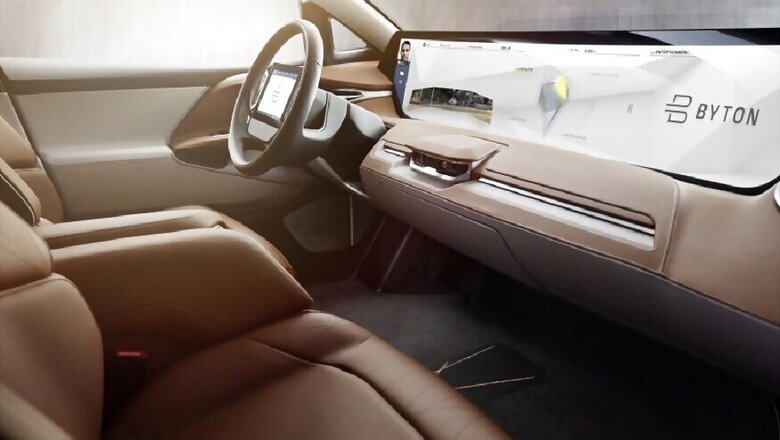
views
Electric vehicles and driverless vehicles are obviously going to change the entire global automotive industry over the coming years, but there's a change happening alongside that's perhaps just as big, or maybe even bigger. As well as all the traditional manufacturers working on their own electric and driverless vehicles, a whole raft of startup companies are also getting in on the act. One such company is Byton, which is going to be unveiling its first autonomous EV at the Consumer Electronics Show (CES) in Las Vegas on January 7.
Byton is one of a number of companies launched last year in China, which have research and development facilities located in Santa Clara, California. Although autonomous cars require advanced sensors and software, electric vehicles are not as complex, specialized or expensive to develop and manufacture as regular vehicles, which is why many new companies are getting on board the trend.
Although Byton hasn't released images of the whole vehicle, which it describes as a "next-generation smart device," it has given us a few glimpses of what to expect as well as some details about the car's technology.
The most obvious difference from this and a traditional car from has been revealed so far is the huge screen that spans the entire top of the dashboard, which the company refers to as the "Shared Experience Display." It's designed for all the car's passengers to consume content together while the car takes care of those driving duties, and has a gesture control interface so any passenger can operate the shared display. The steering wheel also has its own separate screen, and there's a Byton Life Cloud Platform that lets passengers access their own personal apps and data while in the car.
Facial recognition is the preferred method for unlocking the car, and there will be some very cool illuminated panels on the outside of the vehicle that can be switched between different display modes, depending on the situation.
Although we don't even know what style of vehicle the Byton will be, looking at the company's website it does appear to be something along the lines of a crossover. The company says it will start building the car in China in 2019, with sales likely to start in the US and Europe sometime in 2020.
Also Watch: Kevin Flynn, President & MD, FCA India | Interview



















Comments
0 comment